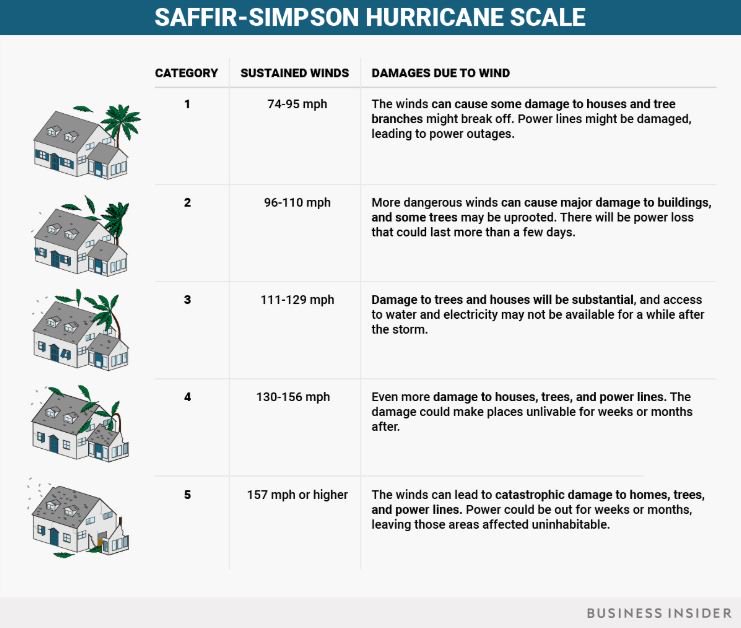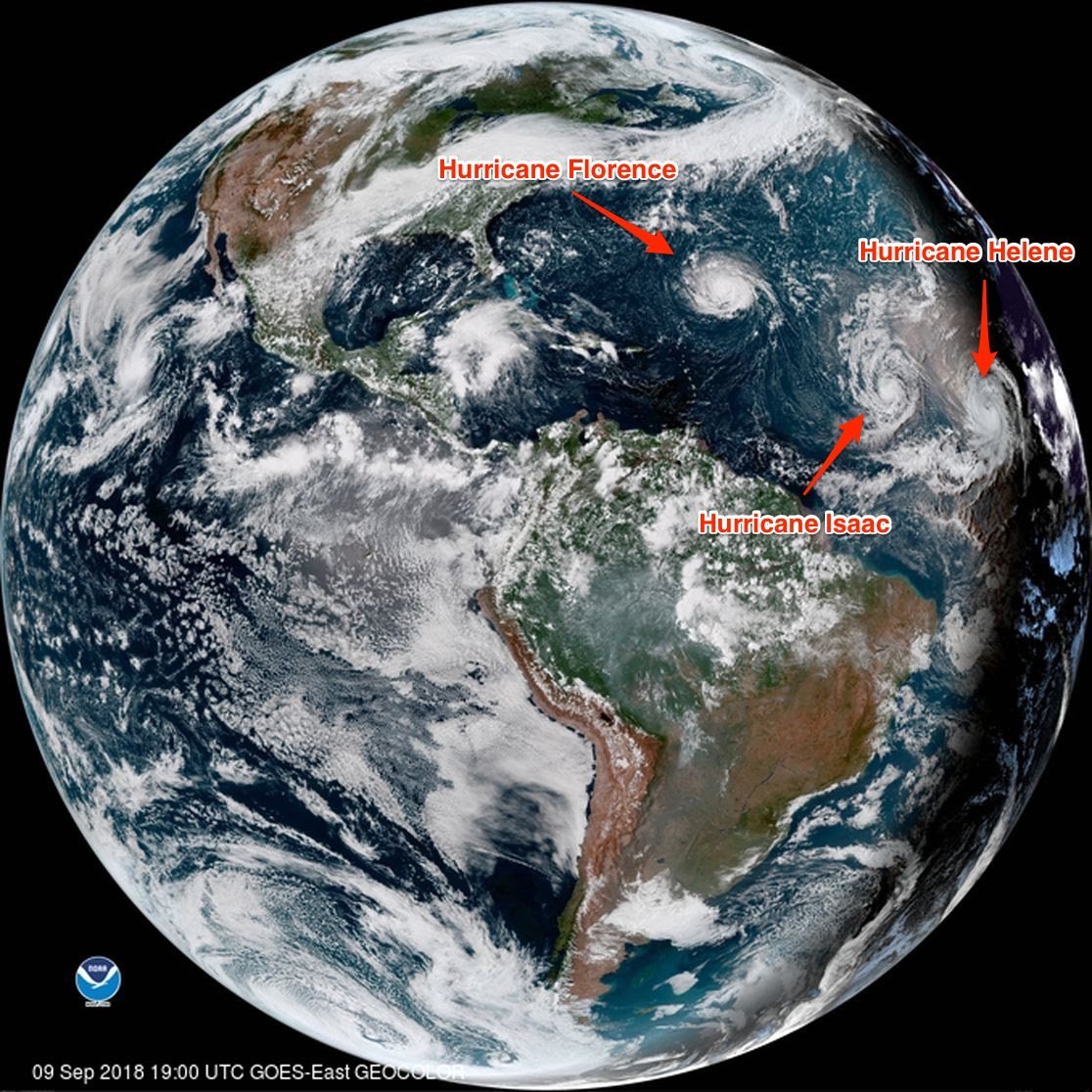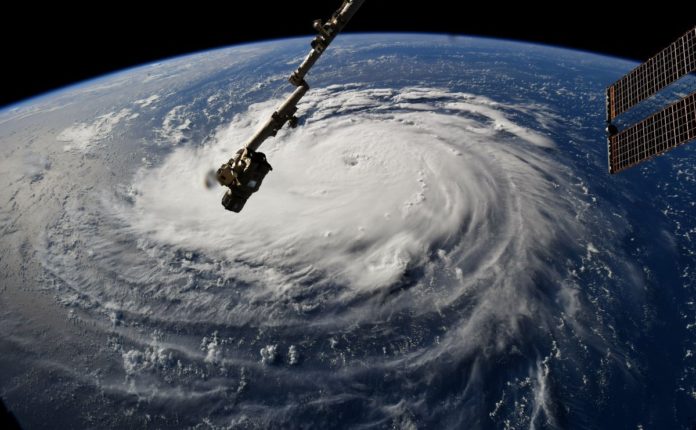The Atlantic hurricane season that usually starts in June, has now peaks on September 10. An average hurricane season includes at least 12 named storms.
It has been a calmer than-normal tropical storm season up until this point, yet things are grabbing big: three hurricanes are beating in the Atlantic, with Hurricane Florence quickly moving toward the US East Coast.
As indicated by the National Hurricane Center (NHC), tropical Hurricane Florence, a Category 4 storm with 140 mph winds, is required to make landfall somewhere close to North Carolina, South Carolina, and the Mid-Atlantic states on Thursday night or Friday morning.
By July, after a relatively quiescent period for Atlantic hurricanes, experts predicted that the season would end up with an average or slightly less than an average number of hurricanes. But the season is just now peaking, and Hurricanes Florence, Isaac, and Helene are a stark reminder that we are not out of the woods yet.

Beyond the damage from wind and high surf, Hurricane Florence is anticipated to slow over the Carolinas where it might dump up to 30 inches of rain over quite a bit of North and South Carolina. Hurricane Isaac, stirring in the mid-Atlantic Ocean with twist rates of around 75 mph, is following firmly behind Florence. Behind Isaac, Hurricane Helene is picking up strength, with twist paces of more than 105 mph as of Monday afternoon.
Hurricanes require warm ocean water to form, so ocean season comes when the Atlantic Ocean is at its warmest. Hurricanes are also getting windier, wetter, and more powerful because of climate change.
As the atmosphere warms, the air can hold more moisture, which allows storms to become stronger and produce more devastating rainfall. More powerful hurricanes also bring higher-than-average storm surges, which can destroy coastal property.

Climate scientist Cindy Bruyere said, “People that have typically not been exposed to them will now be exposed to them because the storms are going to move deeper inland and affect more people.”
